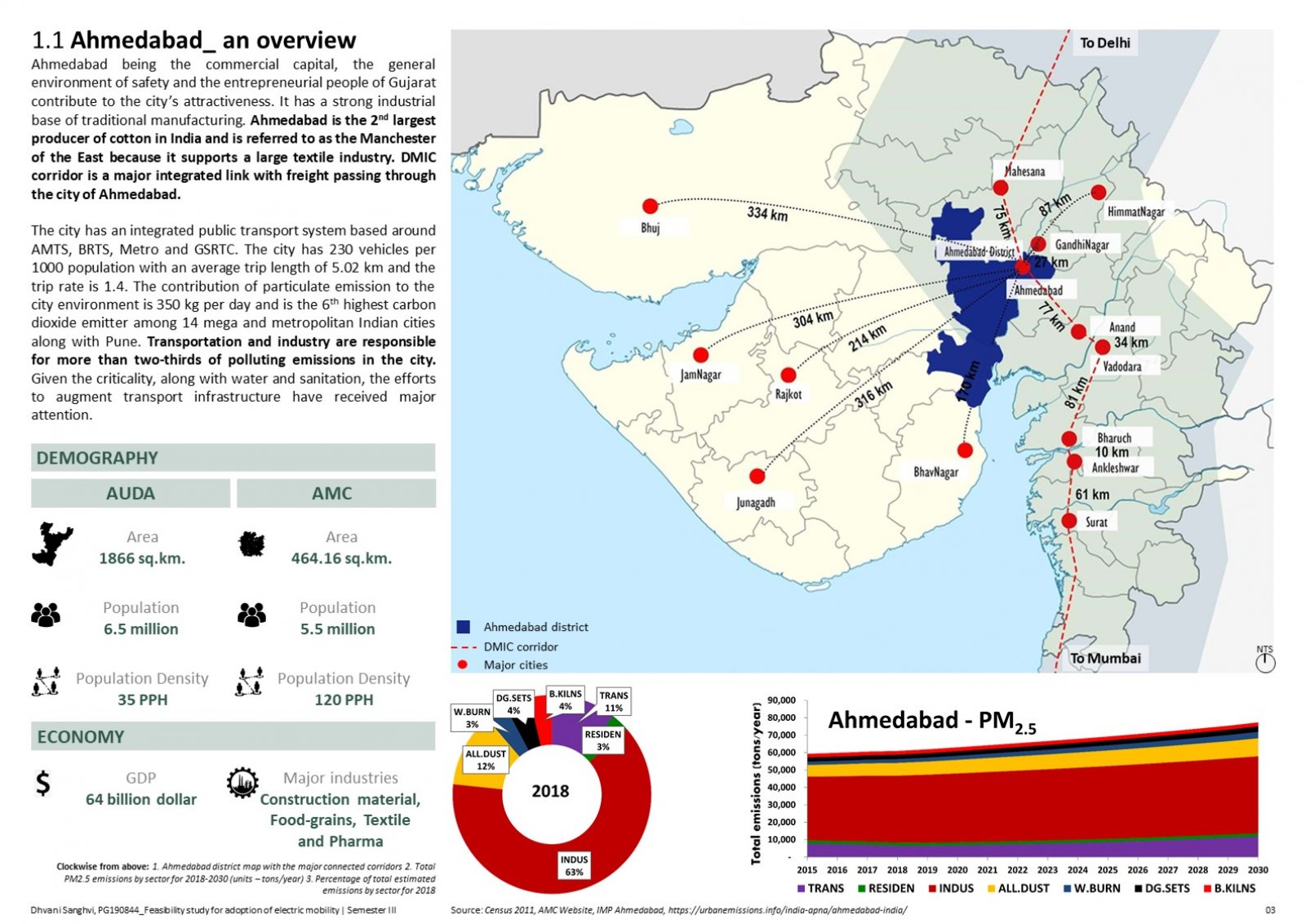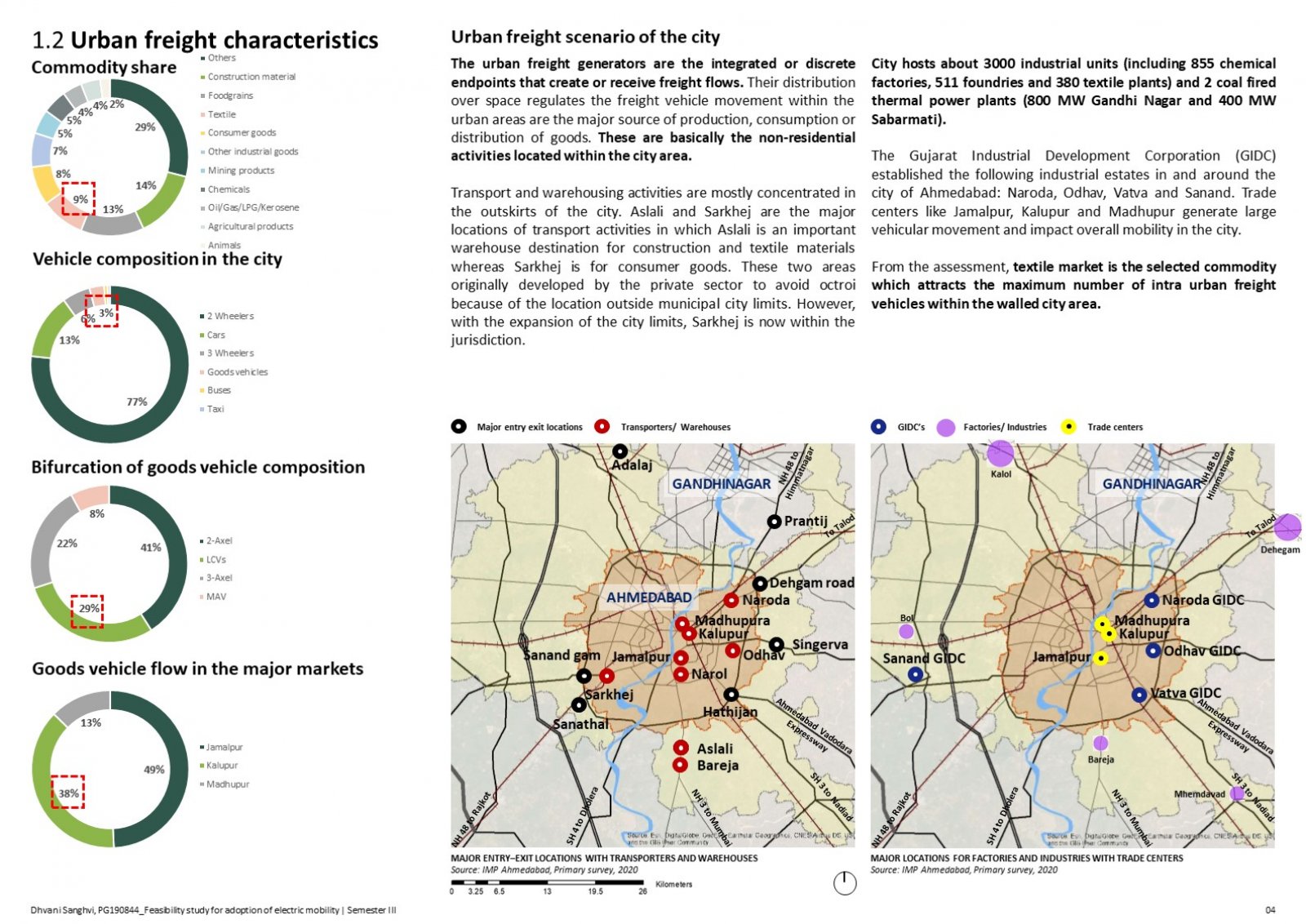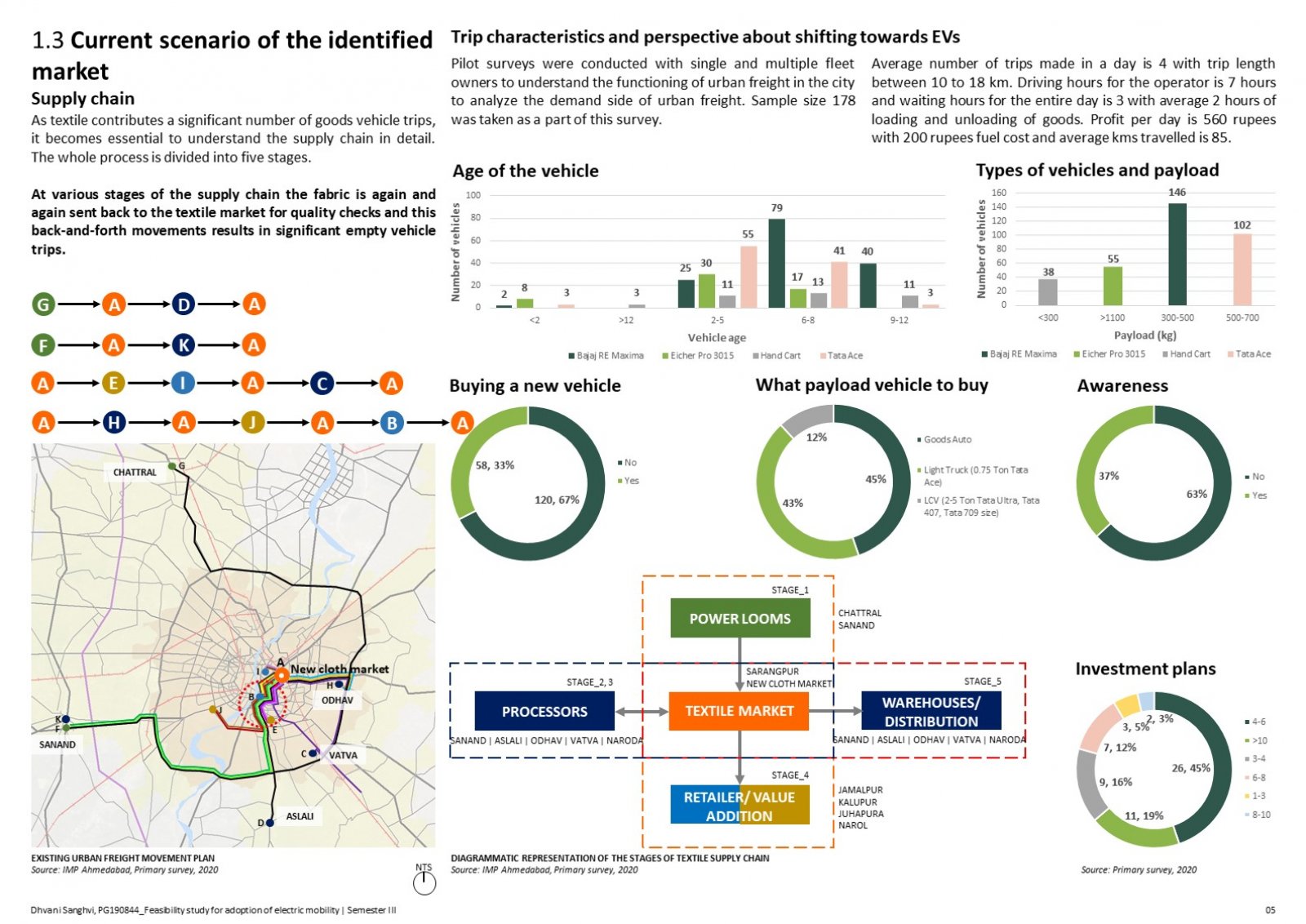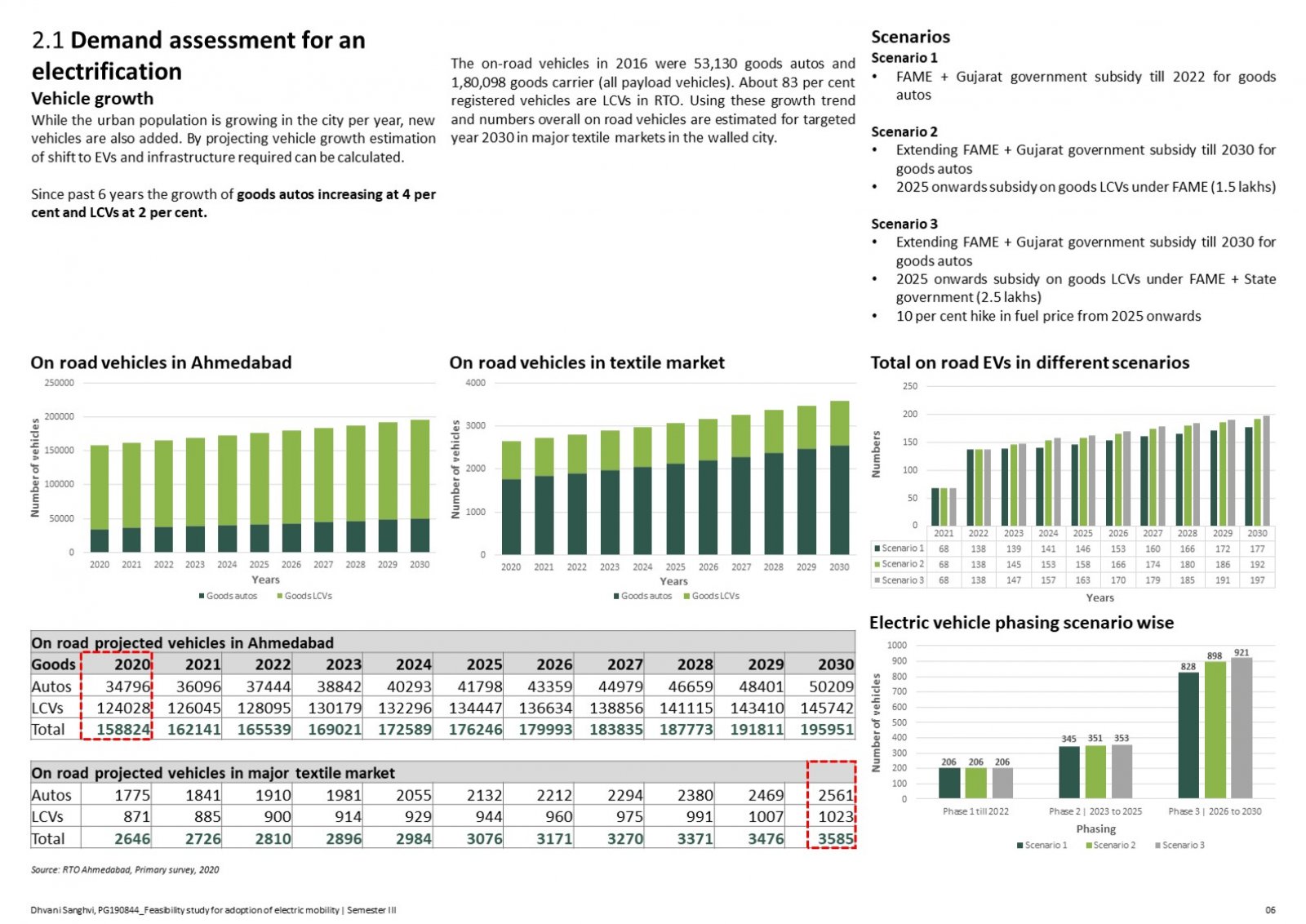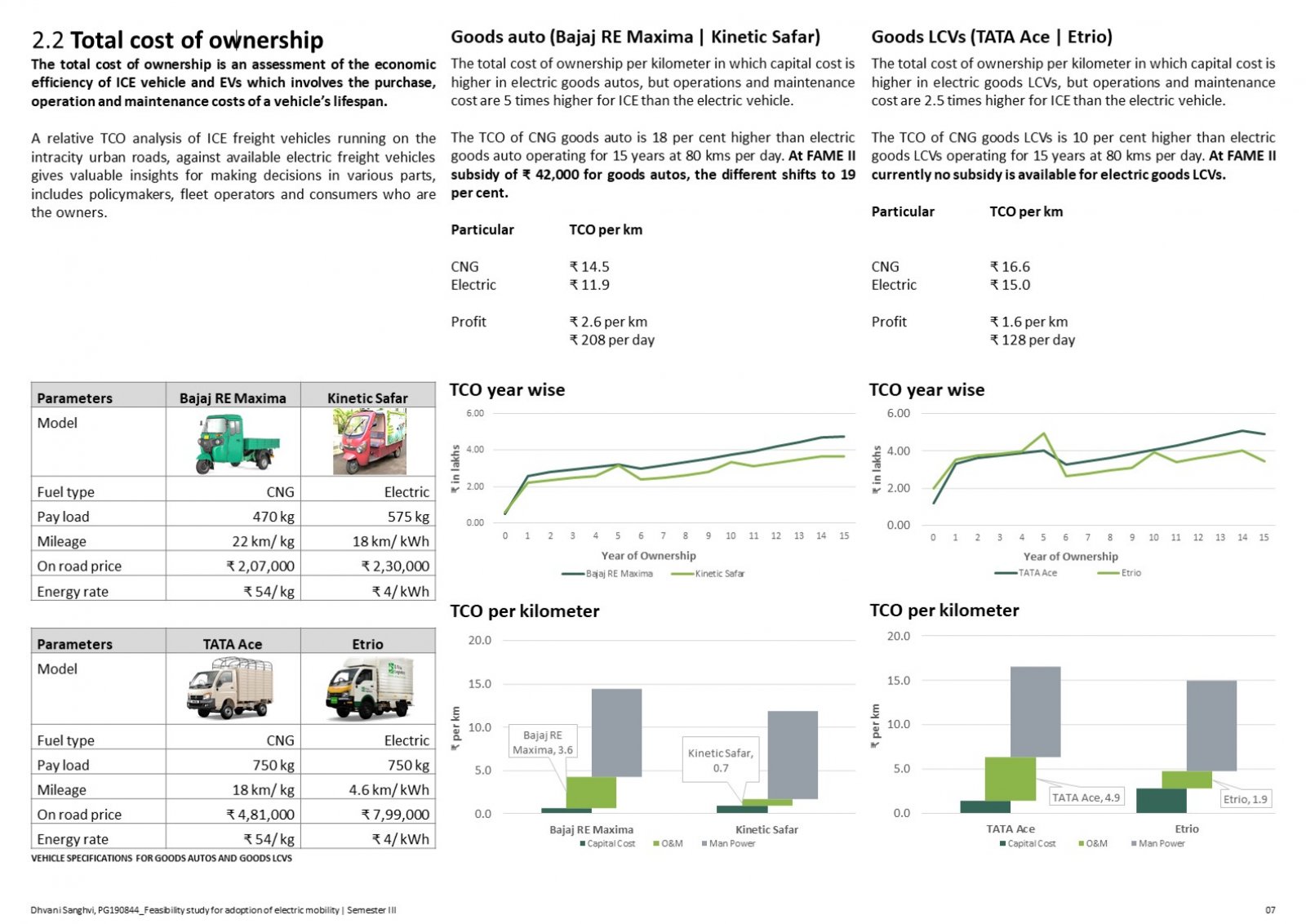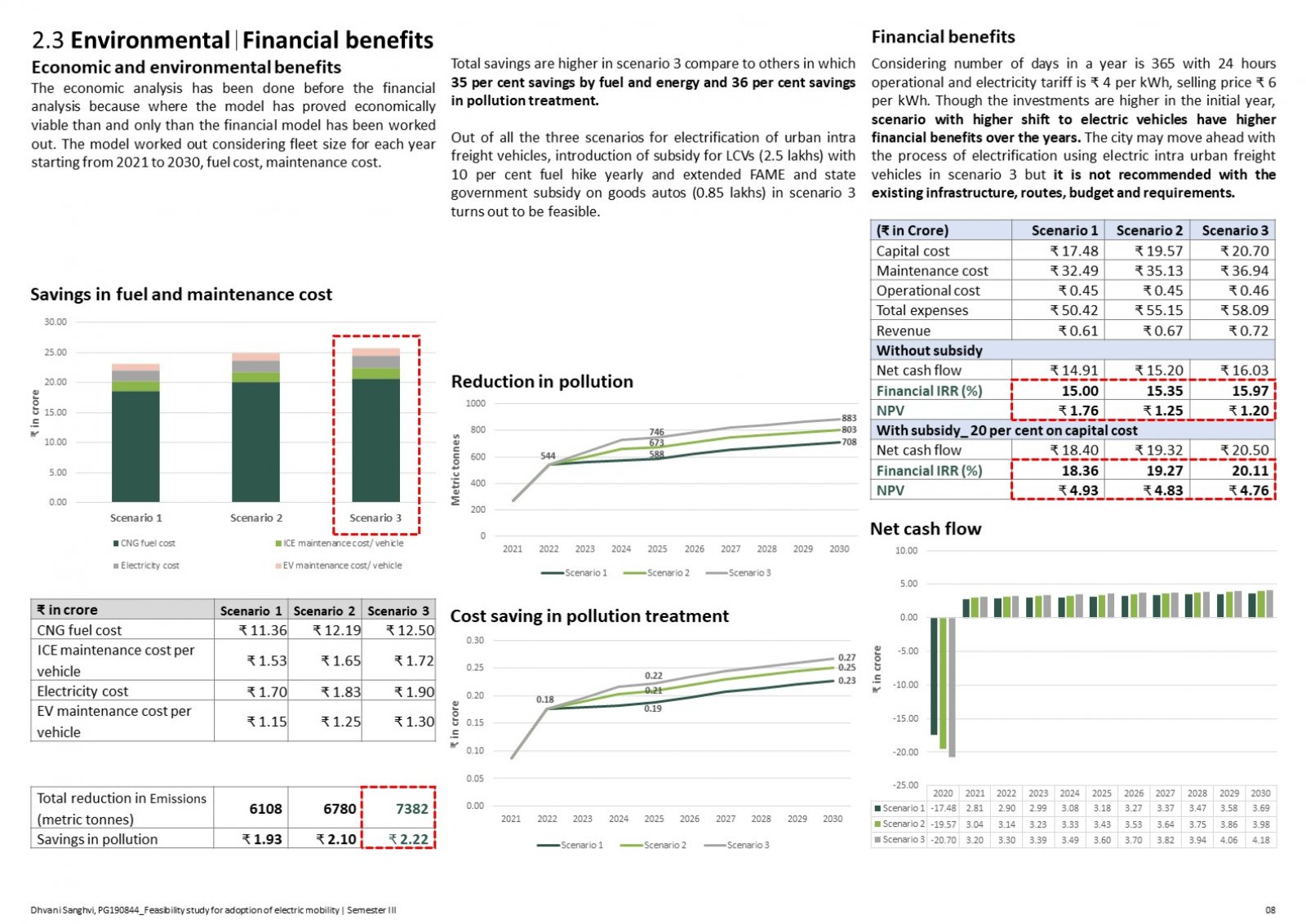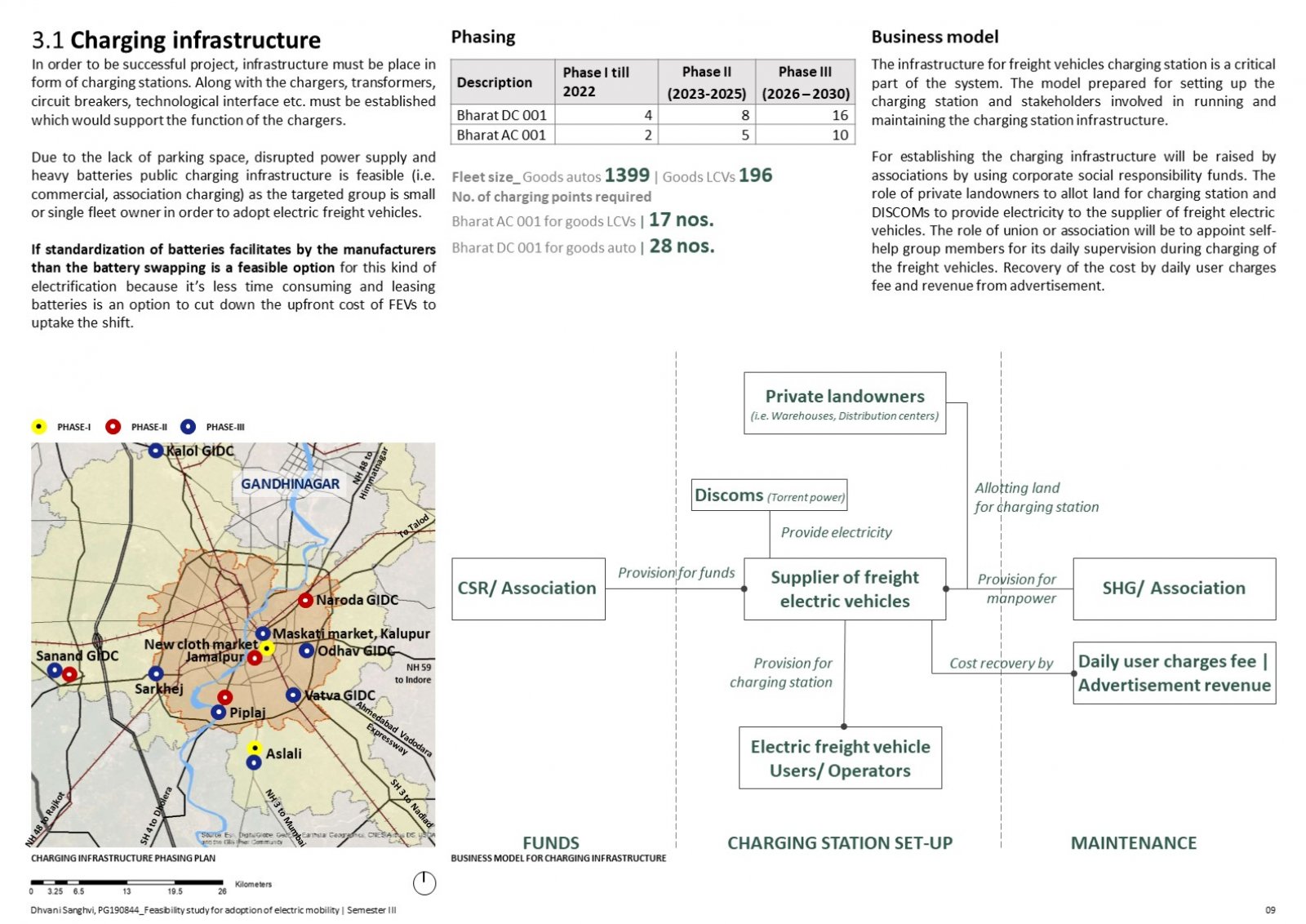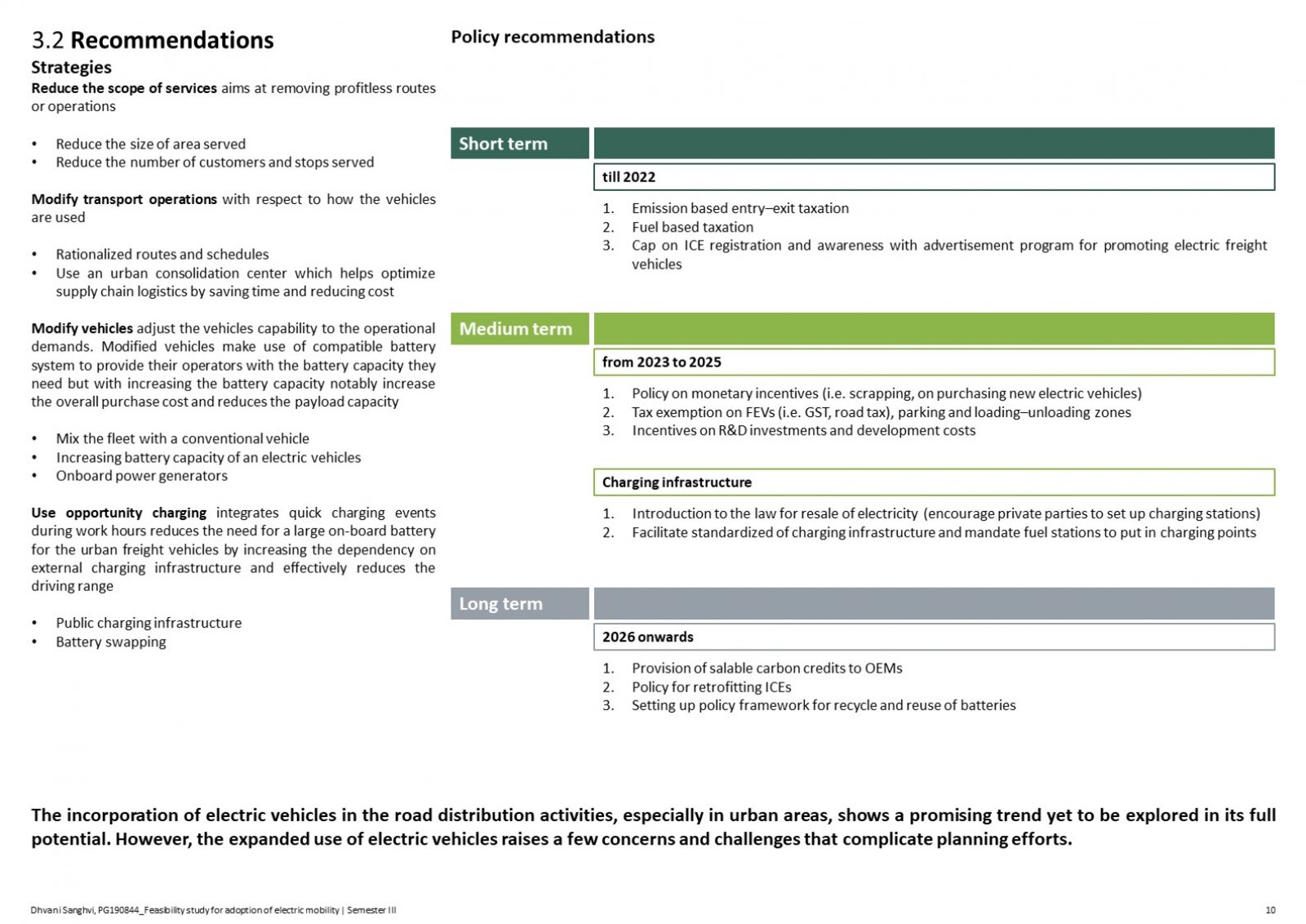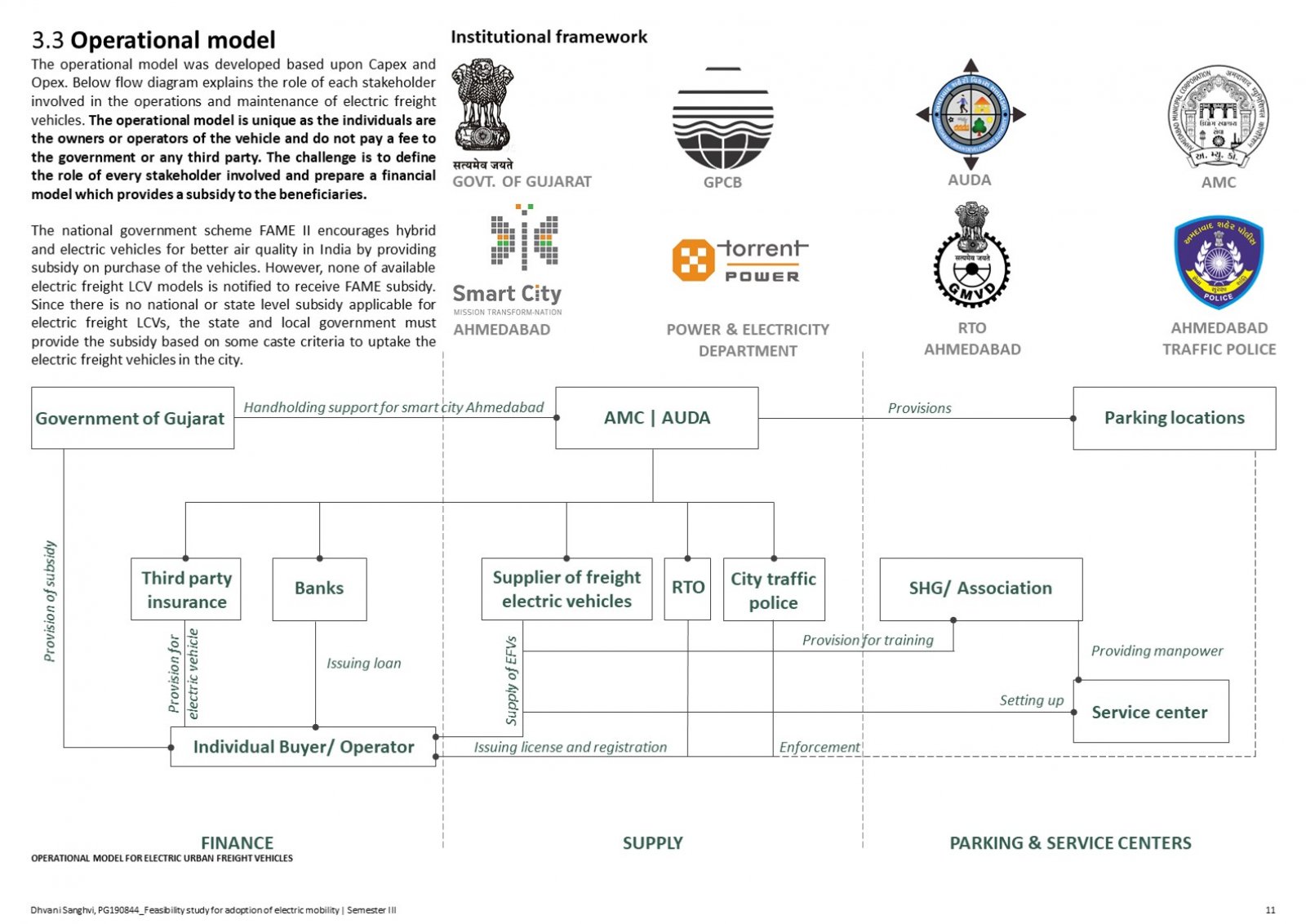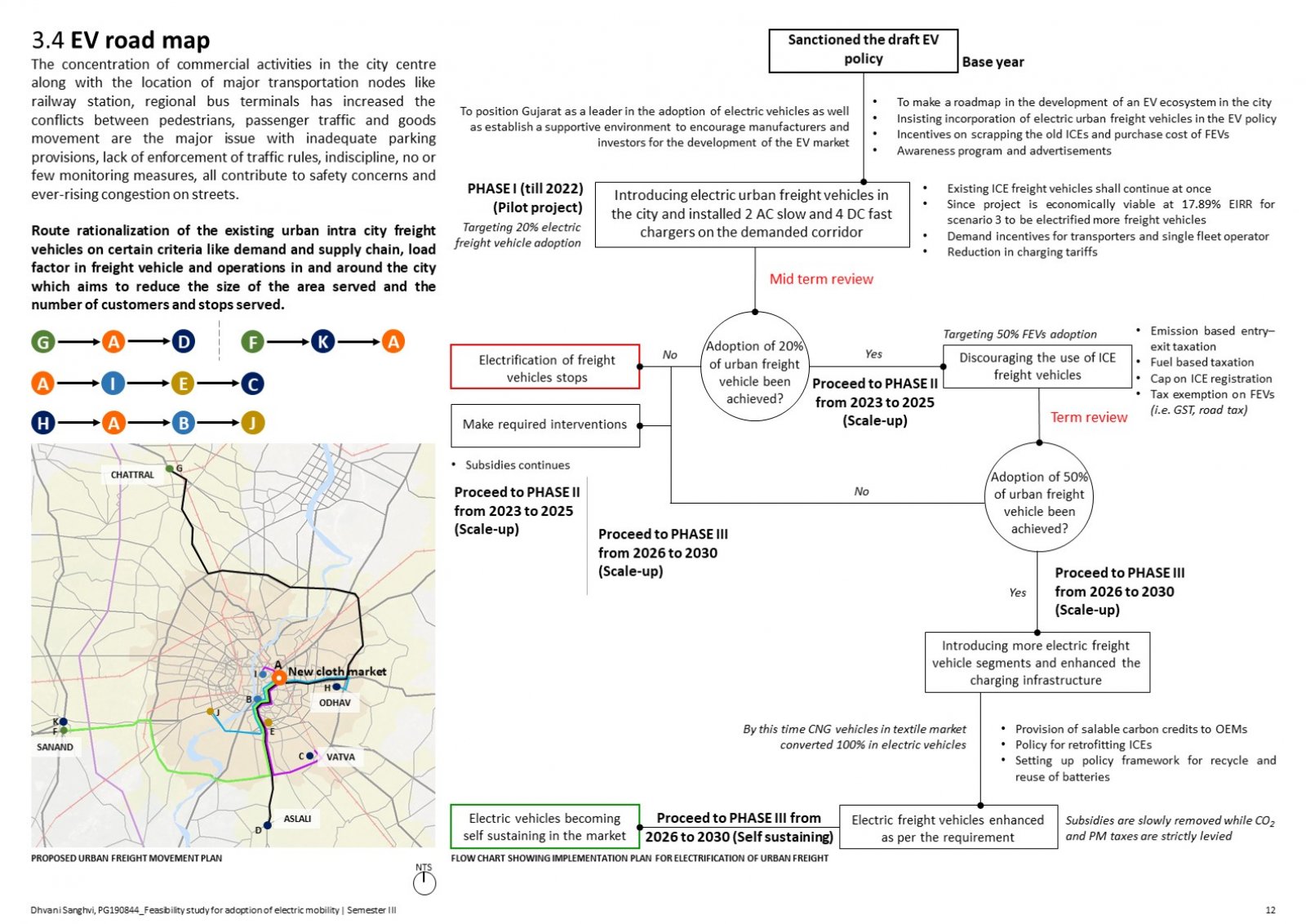FEASIBILITY STUDY FOR ADOPTION OF ELECTRIC MOBILITY
- Student SANGHVI DHVANI DIPENBHAI
- Code PG190844
- Faculty Planning
- Tutor/s Shivanand Swamy,Khelan Modi
- TA Madhura Kawadkar
The comparable advantage to which new technology is perceived to be better over the existing technology it supersedes has a significant impact on individuals’ decision of adapting to the new technology. The objective is to understand and analyse the feasibility of electric urban freight vehicles in the city of Ahmedabad; also looks upon the different types of vehicle used, the electric propulsion system used, infrastructure and the future prospects of the system. Project analyses the impact of electric freight vehicles perceived advantage over the conventional internal combustion engine vehicles, from the consumers perspective, on their decision to choose electric vehicles. Data is obtained from a stated preference survey from 178 single as well as multiple fleet owners (i.e. drivers and transporters) in major textile markets of Ahmedabad.
The collected data is used to evaluate an integrated choice of an electric vehicle with the help of a discrete choice model, which include the perceived advantage of electric vehicles in the form of variables (i.e. purchase cost, operation and maintenance cost) in the utility function. The model is used to simulate the effects of various policies to promote electric vehicles on different cohorts (i.e. goods autos up to 0.5 ton and goods LCVs up to 0.75 ton). Thereafter, the model estimation results are presented in terms of scenarios and the findings are compared with prior studies. The developed scenarios are then used to simulate the economic and financial analysis and the results are reported further. At last, the highlights of the study are summarized in the conclusion section (i.e. EV road map, strategies).
